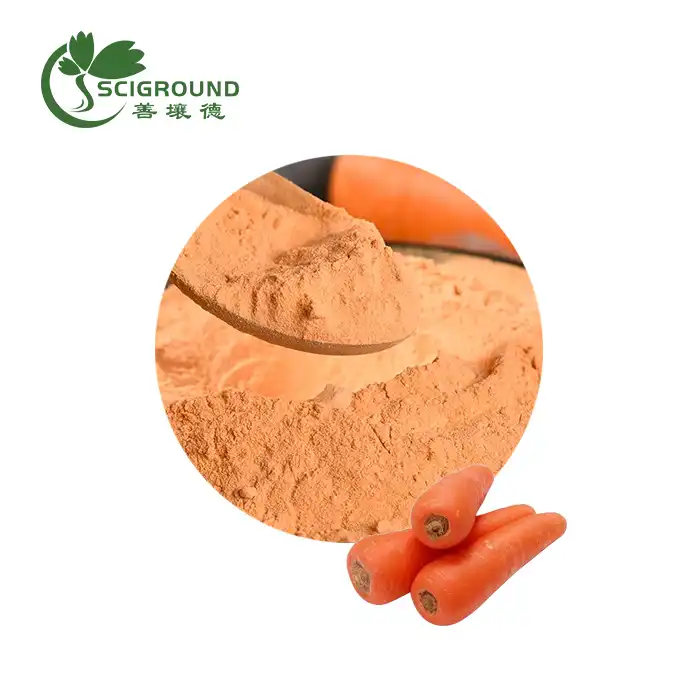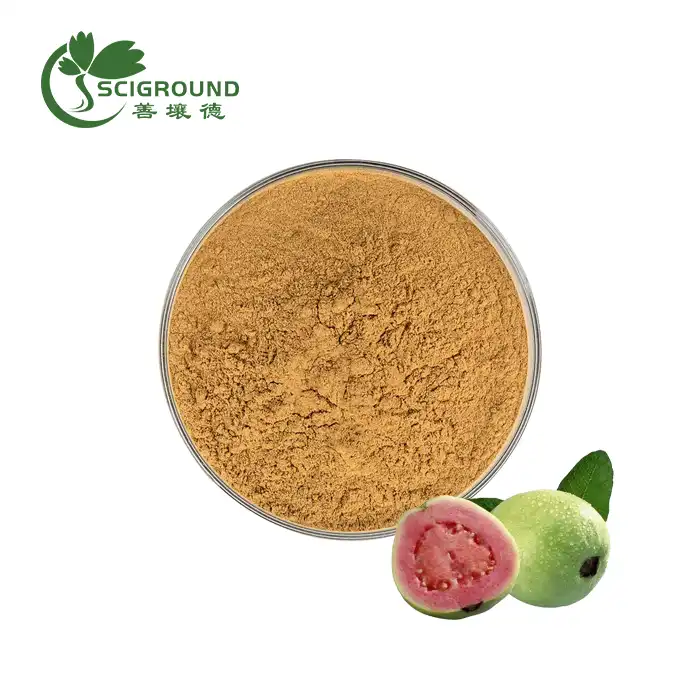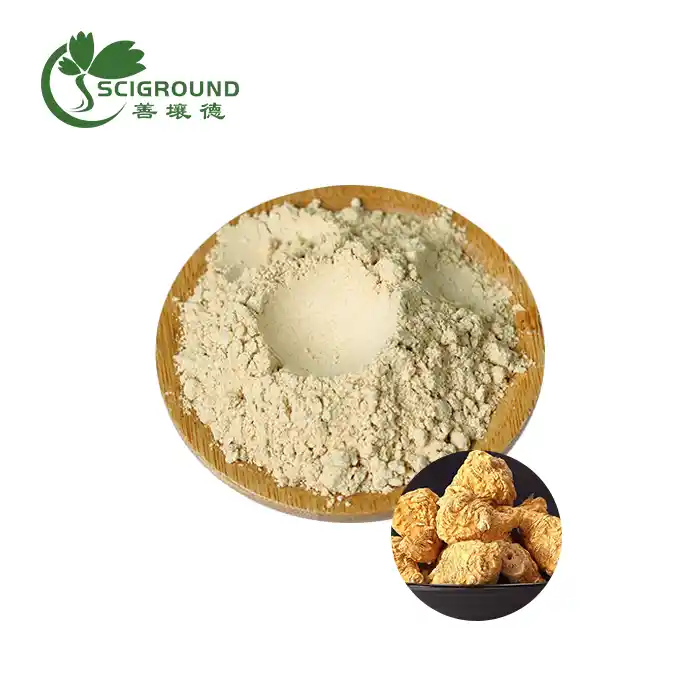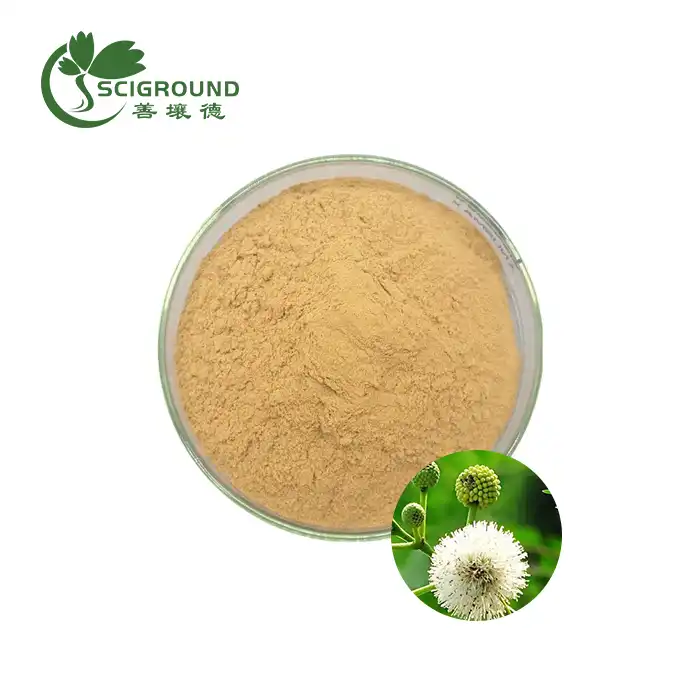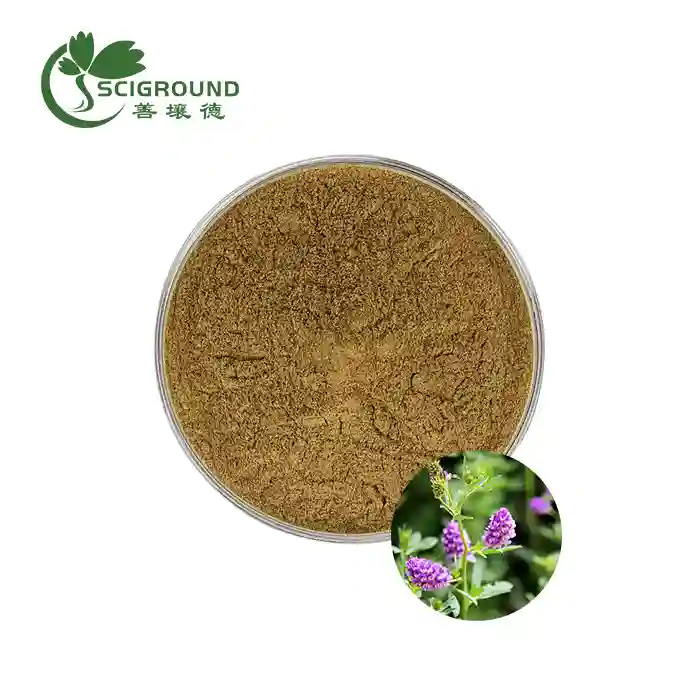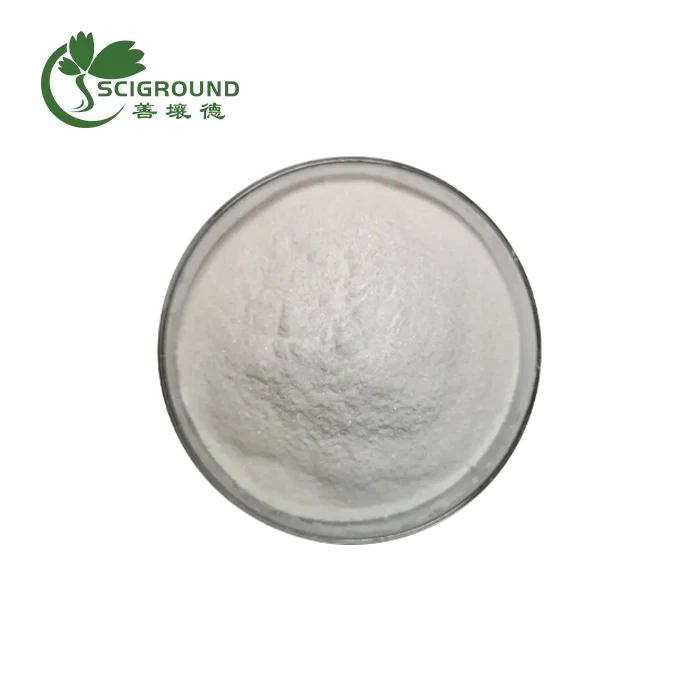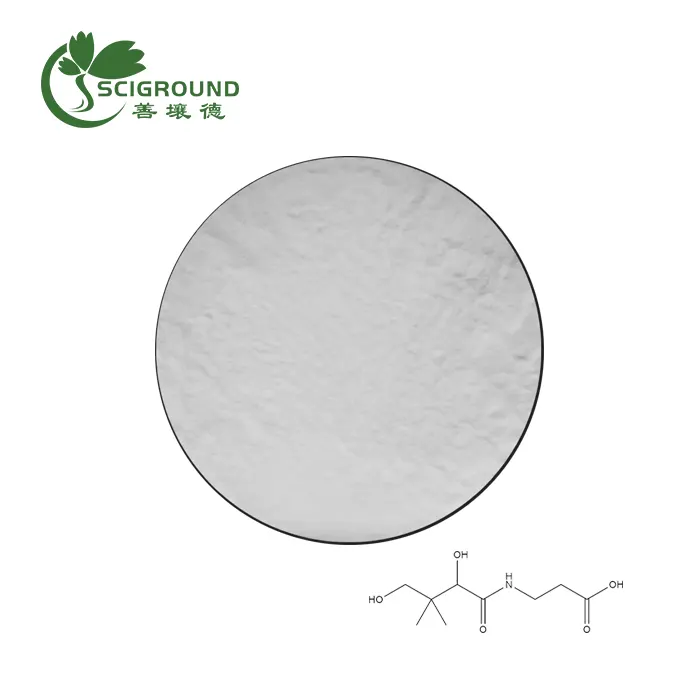Inulin Benefits
Inulin is a type of dietary fiber that has increasingly come into favor for its many health benefits. Unlike some forms of fiber that provide bulking action in the intestines, inulin is different in that it is soluble and has the ability to support the growth of beneficial bacteria in your gut.
Inulin acts as a “prebiotic”, meaning it provides fuel for the probiotics, or good bacteria, that reside in your gastrointestinal tract. Specific strains of probiotics that inulin supports include Bifidobacteria and Lactobacillus. These bacteria offer wide-ranging health perks, from enhanced inulin digestion and absorption of nutrients to immune function and beyond.
Where Does Inulin Come From?
Inulin is found naturally in a range of fruits, vegetables and herbs. Foods particularly high in inulin include:
Chicory root - Chicory root contains very high levels of inulin fiber, ranging from 60-70% of the total carbohydrates. It has been the main source of extracted, isolated inulin used in research and supplements.
Jerusalem artichokes - Also known as sunchokes, Jerusalem artichoke has about 10-20% inulin fiber per tuber. The inulin content changes over the storage life, increasing as starch turns to fructans.
Dandelion greens - Both the greens and roots of dandelion plants contain inulin fiber, providing 2-3 grams per 100 grams of dandelion greens. Young spring leaves tend to be highest.
Garlic - Inulin makes up about 10% of the total carbohydrates in garlic. Chopped, raw garlic contains 1.8% inulin fiber.
Onions - Onions contain about 3-10% inulin of total fructan content depending on the variety. Shallots have some of the highest recorded levels around 5-10%.
Leeks - The white shafts of leeks contain about 3-10% inulin content on a dry matter basis. Spring leeks have more inulin than those harvested later.
Asparagus - This spring vegetable boasts 36% inulin per 100 grams. The content declines later in the season as the spears mature.
Bananas - Bananas have small amounts of inulin measuring about 0.3-0.7 grams per medium fruit. Green, unripe bananas are highest.
Wheat - Whole wheat flour contains 2-4% fructan content, predominantly in the form of inulin molecules with some mixed short fructooligosaccharides.
Rye - Rye flour has slightly higher fructan levels than wheat, providing 3-6% inulin fiber.
Barley - Whole grain barley contains 2-4% beta-fructan fiber in the form of inulin and fructooligosaccharides.
Many supplements and functional foods are made using an extracted, isolated form of long-chain inulin from the chicory plant. This type of inulin has been the most extensively studied and linked to specific health outcomes.
Short-chain inulin from agave or yacon root may have slightly different properties than the long-chain chicory inulin. Most research has focused specifically on long-chain inulin extracts, so this article will refer to inulin from chicory root.
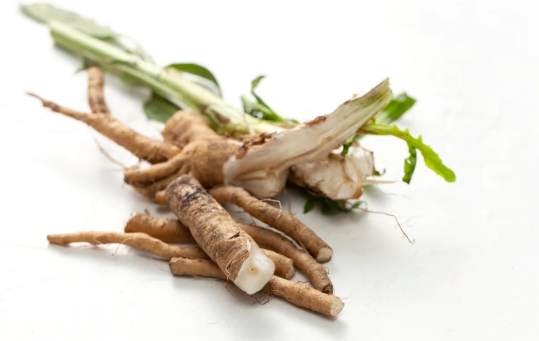
Health Benefits of Inulin
Research has linked prebiotic inulin fiber supplementation to a long list of health benefits:
Inulin Benefits for Brain
Increased calcium and magnesium absorption, important minerals for brain function. Wholesale inulin has been shown to significantly increase absorption of calcium and magnesium in multiple studies. These minerals are vital for neural transmission, muscle and nerve function and overall brain health.
Support of beneficial gut bacteria tied to decreased anxiety and depression. Inulin feeds good bacteria like Bifidobacteria that produce key neurotransmitters like serotonin that regulate mood and anxiety. Studies show inulin's support of a healthy microbiome is associated with lower depression.
Anti-inflammatory effects that protect brain function. Markers like C-reactive protein and cytokines are often elevated in cognitive decline. Inulin has been shown to lower systemic inflammation, which benefits overall brain health.
Inulin Benefits for Skin
Increased collagen production for healthier, younger-looking skin. Research indicates inulin stimulates fibroblast activity which ramps up production of collagen proteins that support skin elasticity and tone.
Support of good gut bacteria tied to clearer skin. Inulin balances gut microbiota, which is linked to reduced acne and improved skin barrier function to lock in moisture. This is tied to less dryness and dermatitis.
Hydrating effects to enhance skin moisture. The prebiotic fibers in inulin attract and absorb water, carrying it to the dermal layers to improve hydration, suppleness and smooth fine lines.
Inulin Benefits for Sleep
Increased tryptophan, a precursor to calming serotonin. Tryptophan is an amino acid needed to produce serotonin, low levels of which are linked to insomnia. Inulin has been shown to boost tryptophan levels which may support better sleep.
Lower inflammation linked to higher quality sleep. Inflammatory cytokines like IL-6 and CRP prevent deep, restorative sleep. Bulk inulin powder lowers systemic inflammation, which researchers think is a key way it improves sleep duration and efficiency.
Improved gut motility and regularity, avoiding sleep disruption. Inulin acts as a prebiotic to balance gut flora, enhancing healthy motility to prevent constipation. This helps avoid GI issues that can impair sleep.

Why Does Inulin Help You Sleep?
Bulk inulin increases serotonin levels thanks to its ability to boost tryptophan levels. Serotonin is an important neurotransmitter that helps regulate sleep.
Research also shows inulin can reduce inflammatory cytokines that are often elevated when sleep is impaired. By lowering inflammation, inulin allows you to fall asleep faster and sleep more soundly through the night.
The prebiotic fibers in inulin also support regular bowel movements. This avoids gastrointestinal issues that can disrupt sleep. Through these myriad mechanisms, inulin has been shown to improve sleep quality and duration.
Inulin Benefits for Hair
Increased absorption of hair-strengthening minerals like iron and zinc. Inulin improves mineral bioavailability of key nutrients for hair growth, including iron and zinc. Deficiency in these minerals is closely linked to hair loss.
Support of probiotic bacteria tied to healthier hair growth. Balancing populations of good gut bacteria with inulin optimizes hair growth cycles. Emerging research shows the gut-hair connection.
Anti-inflammatory effects that protect hair follicles and growth cycles. Inflammation can impair hair follicle function. Animal research indicates inulin lowers markers like IL-6 and TNF-alpha that may promote healthier hair.
Other Inulin Benefits
Increased calcium absorption for bone health. Research overwhelmingly shows inulin boosts absorption of dietary calcium to support bone mineral density and prevent osteoporosis.
Improved digestion and laxation. Inulin acts as a prebiotic to feed beneficial Bifidobacteria that aide digestion. It also adds bulk and softens stool to prevent constipation.
Reduced cholesterol and triglycerides. Multiple studies demonstrate inulin lowers LDL cholesterol to reduce heart disease risk, as well as decreasing circulating triglycerides.
Decreased cancer risk factors. Specific cancers like colon cancer have been studied showing inulin lowers fecal pH and genotoxicity biomarkers linked to lower risk.
Lower inflammation throughout the body. Markers for systemic inflammation like hs-CRP and certain cytokines are decreased with regular inulin supplementation.
Stabilized blood sugar control. Inulin slows carbohydrate digestion and may improve insulin sensitivity. Human trials show it helps control glucose response and HbA1c.
Possible increased mineral absorption. In addition to better calcium absorption, some research shows inulin may improve uptake of magnesium, iron, zinc and B-vitamins.
Weight loss support. By improving satiety, digestion, inflammation and microbiome balance, inulin may aid in healthy weight management. However, more studies are still needed.
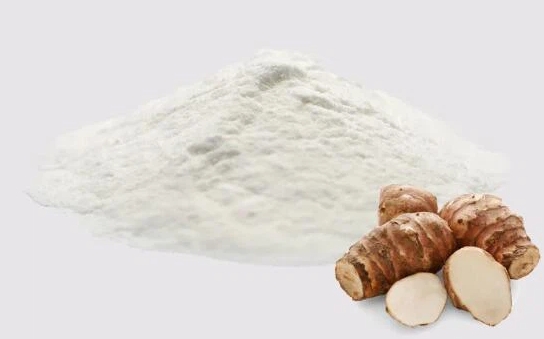
Dosage and How to Take Inulin
Most research on inulin has used dosages between 5-30 grams per day. Start on the lower end of the dosage range and gradually increase over several weeks to allow your digestive system to adapt. Take inulin powder dissolved in water, smoothies, protein shakes or sprouted grain bowls.
Split your dosage into smaller amounts spaced throughout the day. Taking organic inulin powder bulk all at once, especially in the higher dosage range, may cause mild digestive discomfort like gas, bloating or cramping until your system adapts.
Start with just 5 grams per day for a week before slowly increasing the amount over time. Give your body at least 1-2 weeks between each dosage bump up to a maximum of 30 grams per day. Most people do well with a long-term daily inulin intake of 10-20 grams.
Best Time to Take Inulin
The best time to take inulin is alongside or right before meals. Inulin absorbs water in your digestive tract, which helps slow digestion and absorption. Taking it with foods gives it time to fully expand and spread in your intestines where it can provide the most benefit.
Aim to take at least half your daily inulin dose at breakfast, as morning is when your microbiome is most active. You can take another dose alongside lunch and/or dinner. Just be sure to take each dose during or right before eating to maximize results.

Best Time to Take Inulin for Weight Loss
Research suggests taking inulin about 30-60 minutes before meals may be ideal for weight loss. Inulin promotes feelings of fullness when taken before eating, which can curb overeating. The increased gut motility from inulin also minimizes food stagnating in the intestines, preventing potential weight gain.
Take 5-10 grams of inulin powder mixed in water 30-60 minutes prior to lunch and dinner for best results. This allows time for the inulin to fully expand in your digestive tract before you eat, optimizing its effects on satiety and digestion.
Is It OK to Take Inulin Every Day?
Yes, it is safe and beneficial to take inulin daily. Inulin has been shown in clinical studies to help support daily digestive regularity and cholesterol balance in amounts between 2.5 to 10 grams per day.
After an initial adjustment period, most people tolerate inulin well on a daily basis. Start with smaller doses around 5 grams daily and give your body at least 1-2 weeks to acclimate before increasing the dosage.
There is no evidence of long-term harm from daily inulin intake. However, you may want to periodically cycle off for 1-2 weeks every couple months to give your body a break, especially if taking higher doses around 20-30 grams.
Does Inulin Reduce Belly Fat?
Some research suggests inulin may help reduce belly fat storage. Possible reasons include:
Bulk organic inulin powder lowers fat storage hormones like insulin. Elevated insulin drives abdominal obesity. Human trials show inulin reduces insulin levels.
It increases peptide YY and GLP-1 to reduce appetite. These satiety hormones are increased with inulin, helping control overeating that leads to belly fat.
Inulin may block belly fat cell formation and growth. Animal studies show inulin inhibits pre-adipocyte differentiation and fat cell enlargement.
Better digestion and motility prevents stagnation in the intestines. Inulin prevents "sticky" stagnating waste that may promote belly bloating and fat.
While more studies are still needed, these preliminary findings suggest prebiotic inulin fiber may help reduce abdominal fat accumulation when combined with a healthy lifestyle.
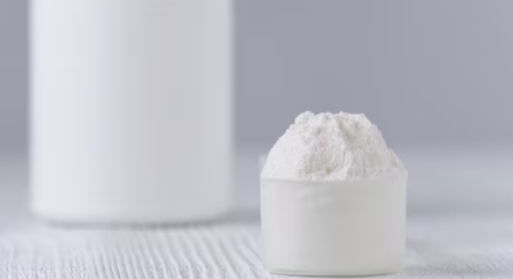
What Happens When You Take Inulin?
Within 30-60 minutes of taking inulin, you'll likely notice increased bowel sounds and motility as the fibers bulk and hold water in the colon. This helps sweep out waste and prevents constipation.
Over the first 1-2 weeks, your digestive system ramps up bile production to break down the prebiotic fibers. Inulin also expands populations of Bifidobacteria and Lactobacillus over this initial period, creating positive changes to your microbiome.
After about 2 weeks, most people notice some reduction in hunger and increased feeling of fullness after eating. This is tied to changes in hormones like peptide YY and improved digestion.
Continued daily use of inulin helps support regularity, improved mineral absorption, cholesterol metabolism, blood sugar regulation and immune health. These benefits develop gradually over 4-8 weeks of daily prebiotic fiber use.
Safety and Side Effects
Inulin is very safe for most people, especially when taken in smaller doses to start. Potential side effects can include:
Gas or bloating. Excess gas is common when starting inulin. It typically improves within 1-2 weeks as your gut microbes adapt. Simethicone supplements can help.
Cramping or diarrhea. Too much inulin too fast may cause temporary loose stools or cramping. This usually resolves quickly by lowering your dose and increasing more slowly.
Increased bowel urgency. The laxative effect of inulin may cause a sudden urge to have a bowel movement shortly after taking it. This lessens over time.
These symptoms are more common when taking too much inulin too quickly before your body adapts. Start with a small dosage of around 5 grams daily for at least 1-2 weeks before gradually increasing the amount. This gives your GI tract time to adjust to the prebiotic fibers and minimizes any digestive discomfort.
Also be sure to drink plenty of water each day to help the fibers move smoothly through your system. Inulin acts like a sponge and absorbs water in your intestines, so staying hydrated is key.
Should You Take Inulin?
Inulin is a safe, natural way to enhance the growth of beneficial bacteria in your gut for better all-around health. The prebiotic fibers have an impressive list of research-backed benefits, from improved digestion and regularity to weight management, heart health, immune function and beyond.
Inulin is very well tolerated, especially when ramping up dosages gradually over several weeks. Taking 5-10 grams per day as a starting point allows your body to acclimate before increasing intake for maximum benefits.
For bulk inulin powder, contact us at email:info@scigroundbio.com.
References:
[1] Finn, K.F. and Hill, P. (2018). Inulin health benefits: Prebiotic improves mineral absorption. Food Science & Nutrition, 6(8), p.2442–2449.
[2] Hume, M.P., Nicolucci, A.C. and Reimer, R.A. (2017). Prebiotic supplementation improves appetite in children with overweight and obesity: a randomized controlled trial. The American Journal of Clinical Nutrition, 105(4), p.790–799.
[3] Chen, H.M., Yu, Y.N., Wang, J.L., et al. (2013). Decreased dietary fiber intake and structural alteration of gut microbiota in patients with advanced colorectal adenoma. The American Journal of Clinical Nutrition, 97(5), p.1044–1052.
[4] Fåk, F. and Backhed, F. (2012). Lactobacillus reuteri prevents diet-induced obesity, but not atherosclerosis, in a strain dependent fashion in Apoe-/- mice. PloS One, 7(10), p.e46837.
[5] Vulevic, J., Juric, A., Tzortzis, G., et al. (2013). A mixture of trans-galactooligosaccharides reduces markers of metabolic syndrome and modulates the fecal microbiota and immune function of overweight adults. The Journal of Nutrition, 143(3), p.324–331.
ABOUT AUTHOR

Celine Xu is a botanist with over 15 years of experience researching and developing plant extracts for nutritional and pharmaceutical applications. She leads an R&D team focused on identification, cultivation and extraction of medicinal plants. Celine Xu earned a Ph.D. in Plant Biology has authored numerous articles in peer-reviewed journals about the health benefits of specific phytochemicals. She frequently speaks at industry conferences about new developments in plant extract research. Celine Xu is dedicated to advancing the scientific understanding of how targeted plant compounds can be used to improve human health.
Related Industry Knowledge
- What is Andrographis paniculata powder used for?
- What are the benefits of Morinda Officinalis Extract?
- What is Alfacalcidol Powder
- Does Stevia Leaf Extract Have Alcohol
- Is Polygala an adaptogen?
- How much resveratrol should I take
- The Power of Pumpkin Protein: A Nutritional Powerhouse for Your Health
- Broccoli Extract Powder: Unlocking the Power of Nature's Superfood
- Is Vitamin B9 Powder the Key to Optimal Health?
- When to drink bcaas
